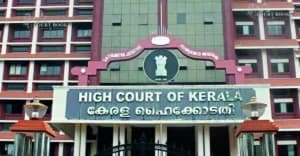The Madras High Court has ruled that Family Courts have no power to grant a decree of judicial separation in a petition filed for restitution of conjugal rights. This significant judgment was delivered by a division bench comprising Justice R. Suresh Kumar and Justice Dr. A.D. Maria Clete while allowing two appeals filed by a husband against a common order passed by the Additional Family Court, Coimbatore.
The appellant-husband had filed a divorce petition under Section 13(1)(ia) of the Hindu Marriage Act, 1955, alleging cruelty by the wife. In response, the wife filed a separate petition seeking restitution of conjugal rights under Section 9 of the Act. However, the Family Court rejected both petitions and instead granted judicial separation by invoking Section 13A of the Act.
Read Also:-Madras High Court: OCI Card and Booklet Valid for Legal Heirship Certificate
Quashing this order, the High Court observed,
"While the Hindu Marriage Act empowers the Court to grant a decree of judicial separation in a petition filed for divorce, no such power is contemplated in a petition filed for restitution of conjugal rights."
The bench emphasized that the Family Court should have dismissed the wife's petition once it found she was not entitled to restitution, rather than granting judicial separation under it.
The husband challenged the Family Court's decision, contending that the relief of judicial separation was not prayed for by either party. He also argued that the Family Court wrongly assessed the evidence, particularly by disregarding his testimony solely because his parents, who were alleged to have been assaulted by the wife, were not examined.
The appellant had alleged that his wife insulted him regularly, left the matrimonial home without his consent, denied conjugal companionship, and even physically assaulted him by scratching his face. He also presented a photograph of the injuries taken by his mother. The Family Court had rejected these claims due to the non-examination of the parents.
However, the High Court stated,
"The mere non-examination of family members cannot, by itself, discredit otherwise cogent and consistent testimony of the petitioner, especially when no material contradictions or admissions were elicited during cross-examination to undermine his version."
The court clarified that the husband’s evidence was credible and could not be dismissed simply due to lack of corroboration from his parents.
The court also considered the wife’s conduct during the proceedings. She admitted her willingness to hand over custody of their minor daughter to the husband without demanding visitation rights. The High Court found this to be a strong indicator of her lack of genuine interest in resuming matrimonial life. Additionally, the wife had lodged false police complaints alleging dowry harassment without any supporting material.
Highlighting the prolonged separation of more than 14 years and the breakdown of the marital relationship, the High Court concluded that the husband had indeed established a case of mental cruelty.
Citing the irretrievable breakdown of marriage and the wife's conduct, the High Court allowed the husband’s appeal for divorce and set aside the judicial separation ordered by the Family Court.
The court ruled:
"The marriage solemnized on 06.06.2011 between the appellant and the respondent is dissolved by a decree of divorce under Section 13(1)(ia) of the Hindu Marriage Act."
Additionally, while the Family Court had awarded a monthly maintenance of ₹30,000 to the wife and child, the High Court enhanced it to ₹40,000, considering the child's current age and rising educational expenses.
Counsel for Applicant: Mr. K. S. Karthik Raja
Counsel for Respondent: Mr. T. K. S. Gandhi
Case Title: ABC v XYZ
Case No: C.M.A.Nos.1422 & 1433 of 2021















